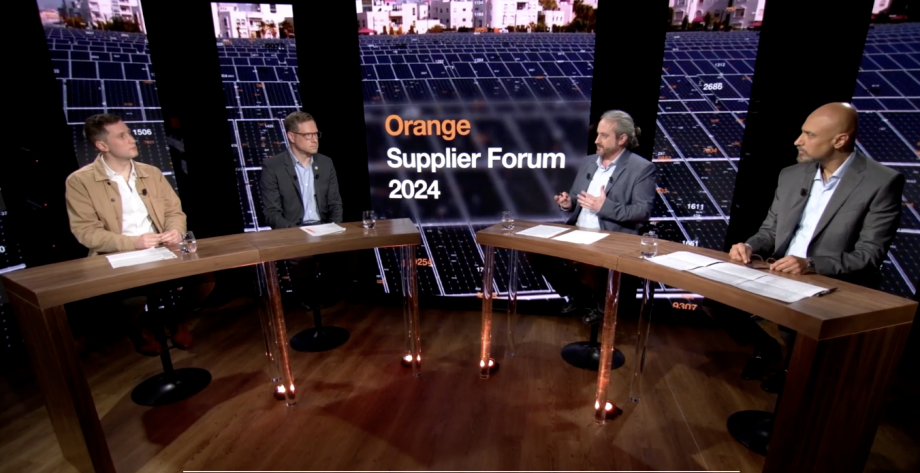
To inspire suppliers in the telecommunications sector to make the switch to circular economy, UNIDO, through its global Switch to Circular Economy Value Chains (SWITCH2CE) project joined the latest edition of the annual Global Supplier Forum organized by the global telecom Orange.
The switch to a circular economy poses several challenges for suppliers in the telecommunications industry. In essence, it requires altering the existing business models, with more specific challenges such as the switch to circular design (ex. modularity), the need to establish robust reverse logistics systems to manage collecting, refurbishing, and recycling of products; regulatory compliance; global supply chains management, and even educating consumers on circular economy practices. At the same time, there is a growing appetite and demand for a shift to circularity across many industries and geographies, including ICT and electronics. Driven by regulations in some of the largest markets, such as the EU, which then have an impact across the global value chains in producing countries.
SWITCH2CE, a global initiative co-funded by the European Union and the Government of Finland and led by UNIDO aims to address challenges and de-risk the business environment for the private sector to enter the circular economy market. In Egypt, SWITCH2CE started a pilot with Orange and with partners Nokia & Cordon. It focuses on creating and expanding the second-hand market in Egypt for smartphones and infrastructures, with Nokia establishing a refurbishment center for radio infrastructure as part of this pilot. This pilot is not only valuable for Orange and its partners but also for the sector as a whole, as it reduces costs, environmental impact, and reliance on fossil fuels. It also presents an opportunity for other Egyptian operators to join this circular ecosystem. The initiative is being piloted first in Egypt, but the ambition is to expand and include affiliates across the MENA region when local regulations allow.
From the perspective of global operators such as Orange, the inclusion of all suppliers in this transformation is not just a strategic move but an absolute necessity to fulfil challenging commitments. For suppliers such as Nokia, it will significantly cut down costs of sending equipment from Egypt (and later, from MEA countries) to Finland for refurbishing, testing and validation of products. By saving fossil fuels, it will reduce both costs and environmental impact. The pilot has a social aspect too, as Egyptian workers will be trained for circular jobs, thus empowering the local workforce.
The roundtable discussion highlighted that circular economy transformation requires a holistic approach and engagement across the entire value chain. It demands collaboration, a willingness to adapt existing business models, and swift action in operations. The insights and commitments made during this roundtable are not merely theoretical; they represent tangible steps towards a more sustainable future for the telecommunications industry and beyond.
The full discussion is available at: